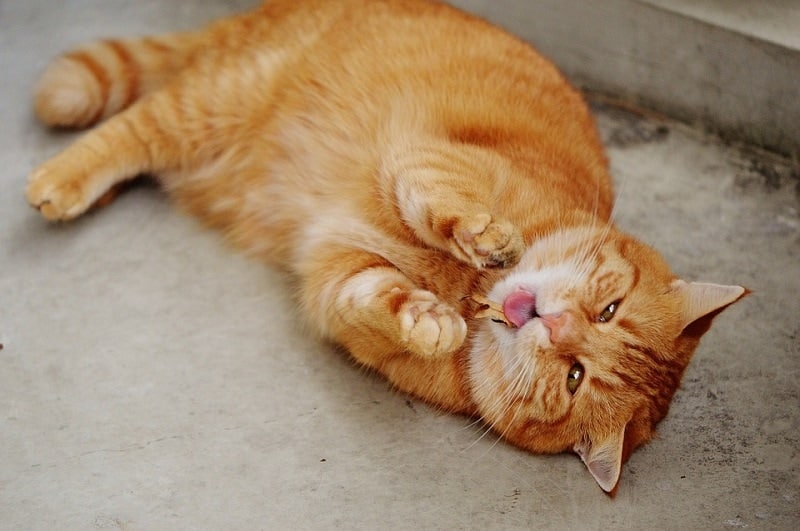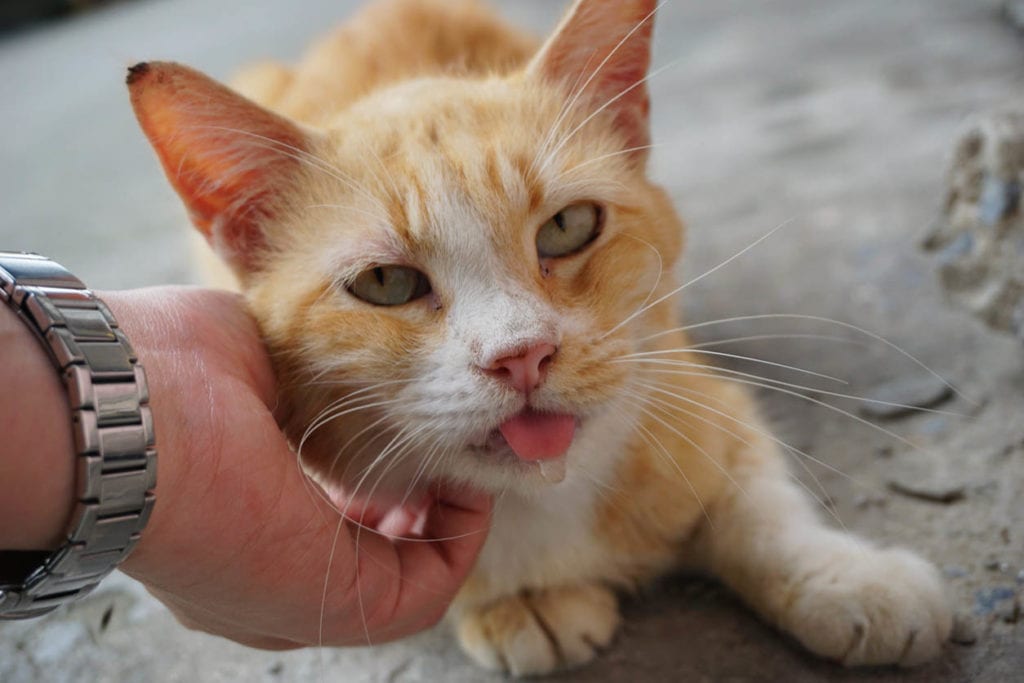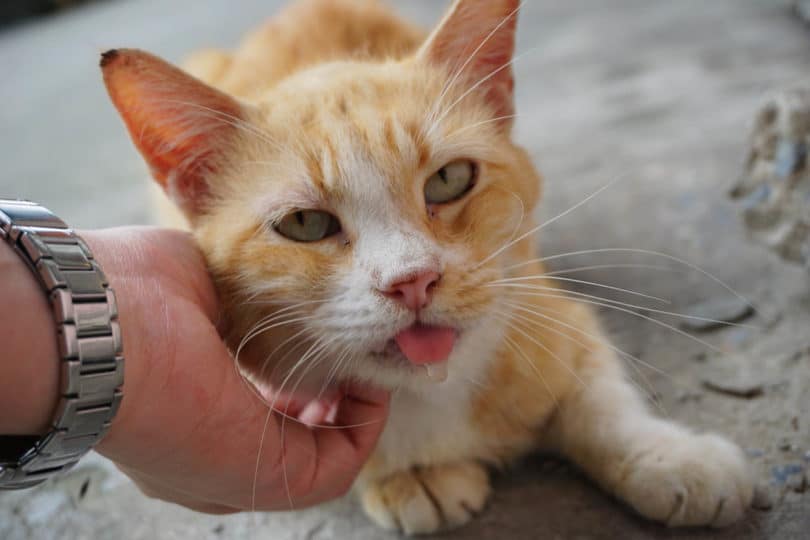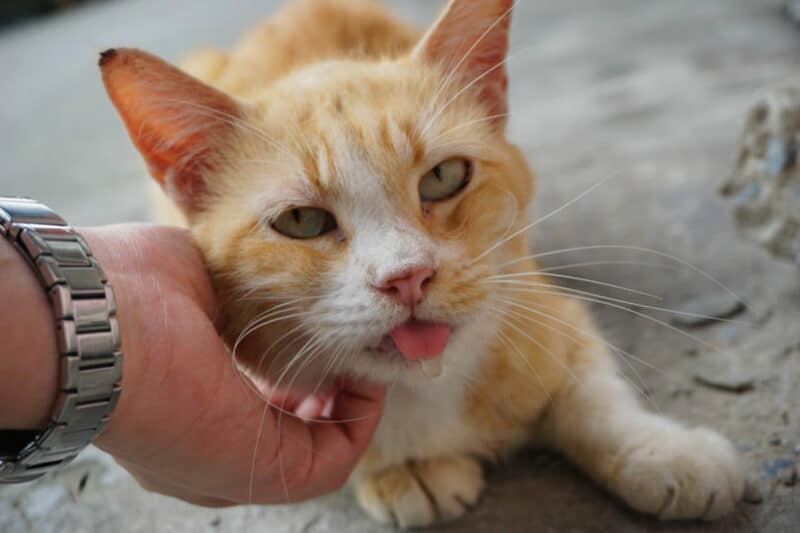Cats are much less likely to drool than dogs, which is why the phrase, “Cats rule, and dogs drool,” is so appropriate. In fact, some cats never drool in their lifetime. However, other cats might do so frequently. There are a few reasons why a cat will drool. Some are nothing to worry about, while others require the care of a veterinarian. Here are four reasons that cats drool and what to do about it.

The 4 Reasons Why Cats Drool
1. They Are Happy

Many cats drool when they are feeling happy and relaxed. You might find that your cat drools when they are kneading or while they are getting petted. They might drool when their toys or playmates excite them. Cats learn this behavior as young kittens when they nurse from their mother.
They drool and knead their mother’s belly to ensure a good flow of milk. The behavior does not carry on into adulthood with all cats, but many will revert to their kittenish ways whenever they feel content.
- What to Do About It: No solution is necessary because everyone wants a happy cat in their life!
2. They Have Been Injured
Drooling is common in cats that have been injured in the mouth. If they cut their mouth, scrape their tongue, or slash their cheek, their mouths drool to keep things lubricated while they heal.
Some injuries will heal on their own, while others may need medical attention. It is essential to check your cat’s mouth daily to see if their injury is healing. If the injury seems to be sticking around, you should schedule an appointment with your veterinarian as soon as possible to determine whether antibiotics or stitches are needed.
- What to Do About It: Monitor the injury, and offer wet food instead of dry. It may be necessary to see a veterinarian.
3. They Ate Something That They Didn’t Like

If a cat chews on something they do not like the taste or texture of, drooling may occur as the body’s natural defense to help clean their mouth. The drooling should be temporary and not accompanied by any other signs. Your cat might head to their water dish for a drink to quell the drooling.
If the drooling lasts longer than a few minutes and is accompanied by vomiting or diarrhea, your cat may have eaten something poisonous, and an emergency trip to the veterinarian is necessary.
- What to Do About It: Try to determine what your cat ate, and keep it away from them in the future. Chances are that your cat will not try to eat the item again after the bad experience with it.
4. They Have Health Problems
If you cannot figure out why your cat is drooling, and they continue to do so for more than a day, an underlying health problem may be responsible. The drooling can be caused by a respiratory problem, a viral infection, or oral cancer. Dental problems like gum inflammation and gingivitis can also cause drooling. There is no way to be sure until a veterinarian is consulted.
- What to Do About It: Make an appointment with your veterinarian as soon as possible.

Final Considerations
Luckily, drooling is not something that your cat should do regularly unless they are prone to drooling whenever they are feeling euphoric. If your cat seems to drool often for no reason, take your cat to the vet’s office. Your veterinarian can provide you with peace of mind, if nothing else. Have you noticed your cat drooling before? If so, what were the circumstances, and what was the outcome? Share your experience with us by leaving a comment.
Featured Image Credit: Ling_Chen, Shutterstock










